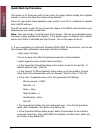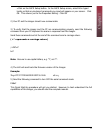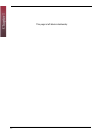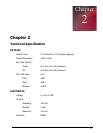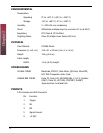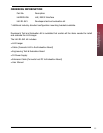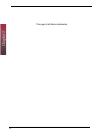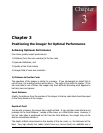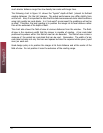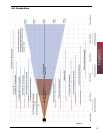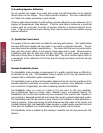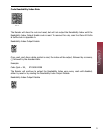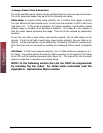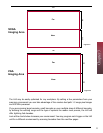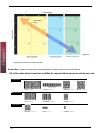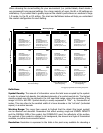
Chapter 3
18
Chapter 3
19
much shorter distance range than low density bar codes with larger bars.
The following chart in gure 3.1 shows the “typical” depth-of-eld (closest to farthest
reading distances ) for the LH2 imagers. The actual performance may differ slightly from
unit to unit. Also, it is important to note that this data was measured under ideal conditions
using high quality bar code labels. In a “real world” environment the conditions will not be
as ideal. Therefore, the best practice is to position the imager at its focal distance rather
than at the extremes of its depth-of-eld.
The chart also shows the eld-of-view at various distances from the window. The eld-
of-view is the maximum width that the imager is capable of reading. A bar code label
positioned anywhere within this eld-of-view can be decoded. The eld-of-view is also a
measure of the widest bar code label that can be read. Remember: The width of a bar
code label includes not only the bars and spaces but also the required white space (quiet
zone) on each end.
Good design policy is to position the imager at its focal distance and at the center of the
eld-of-view. Do not position it near the extremes of the reading range.



